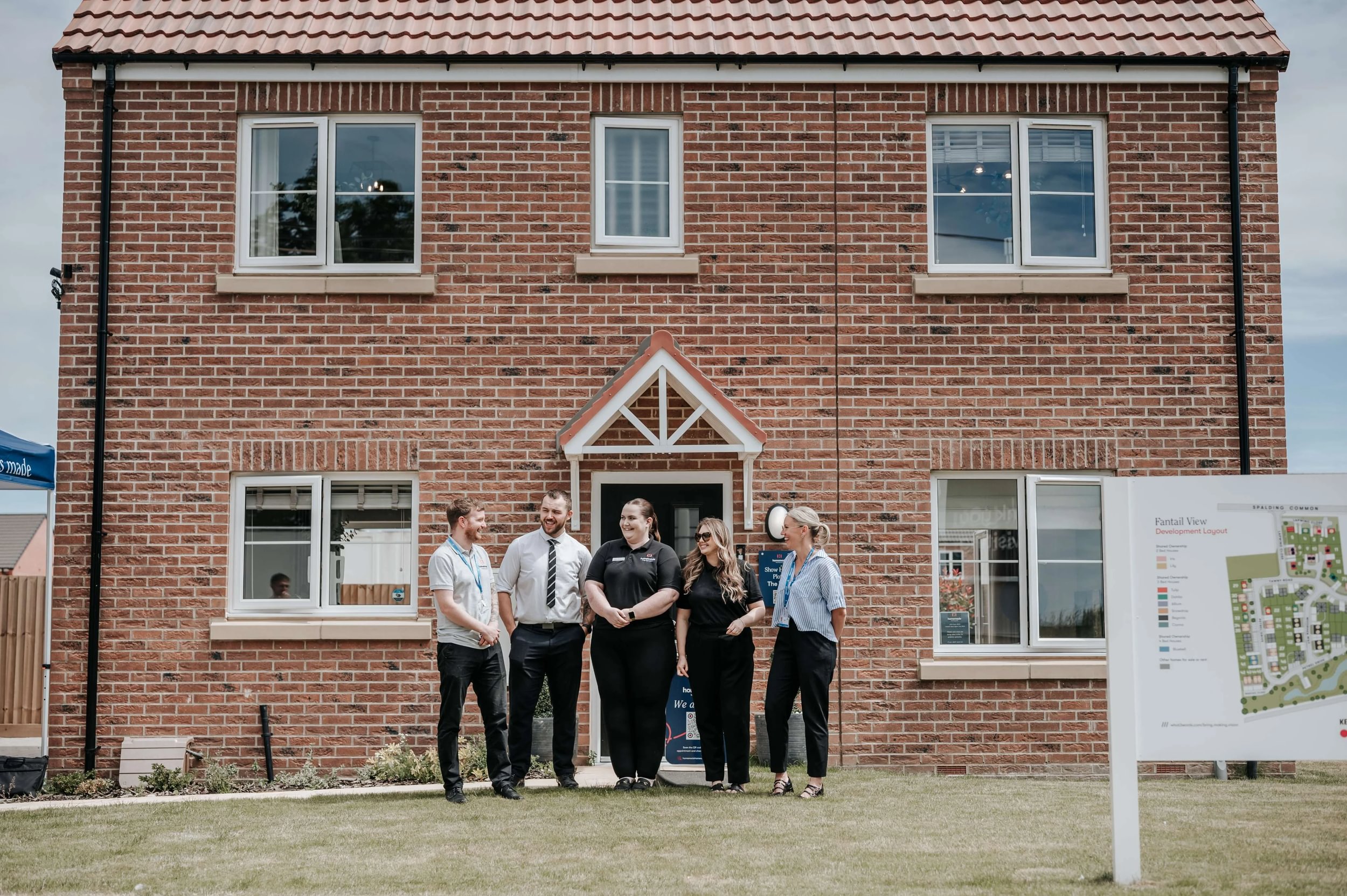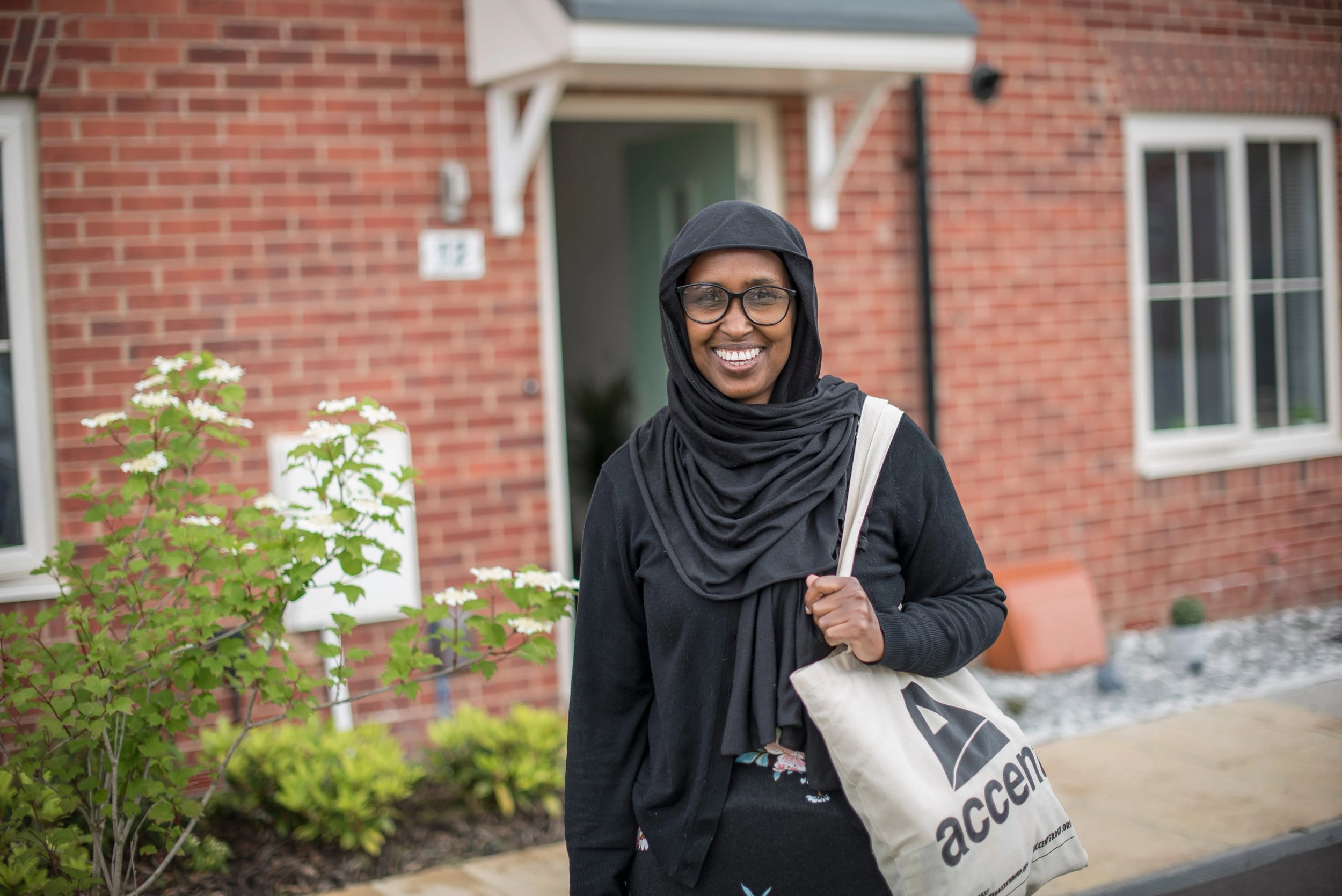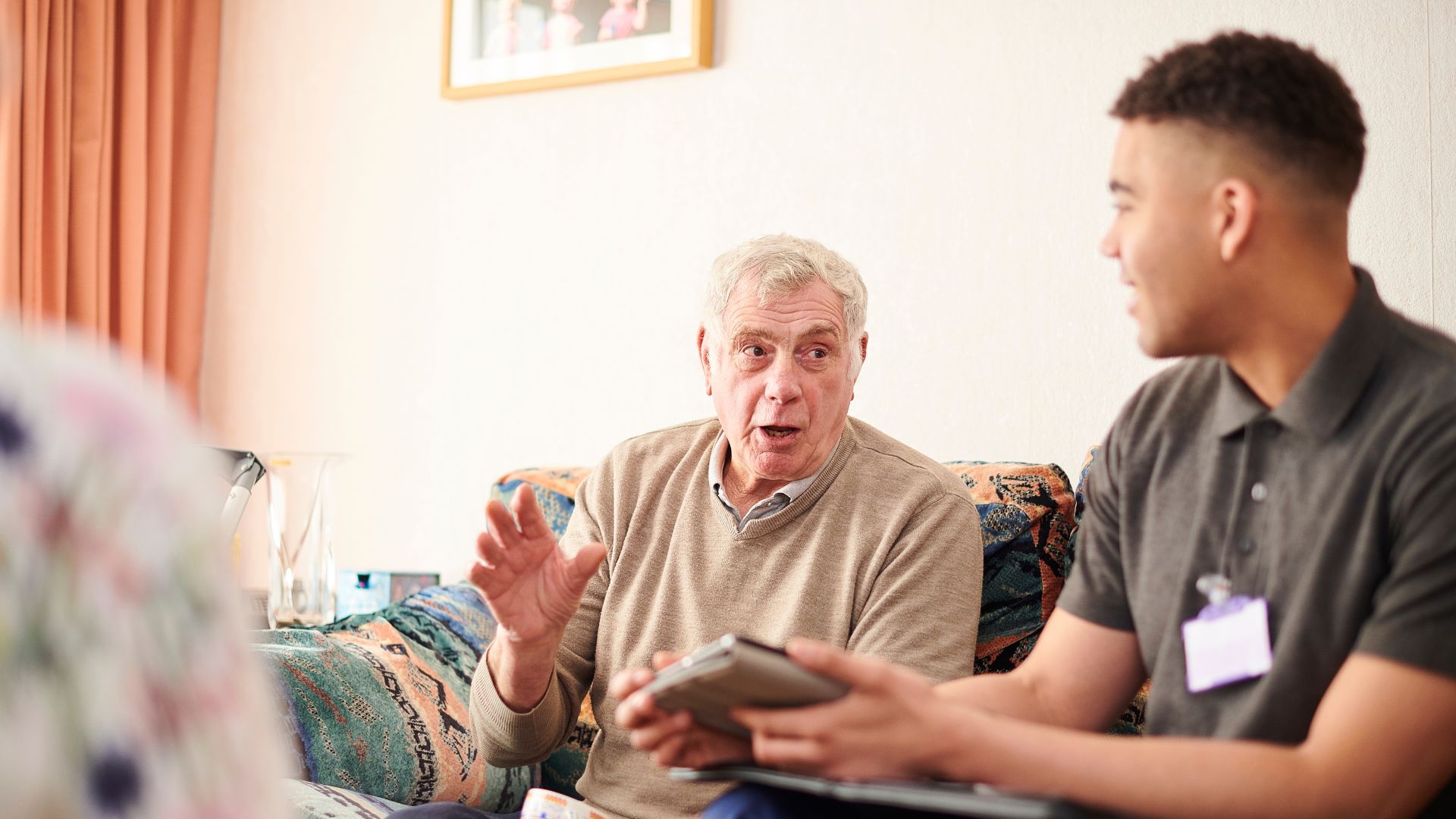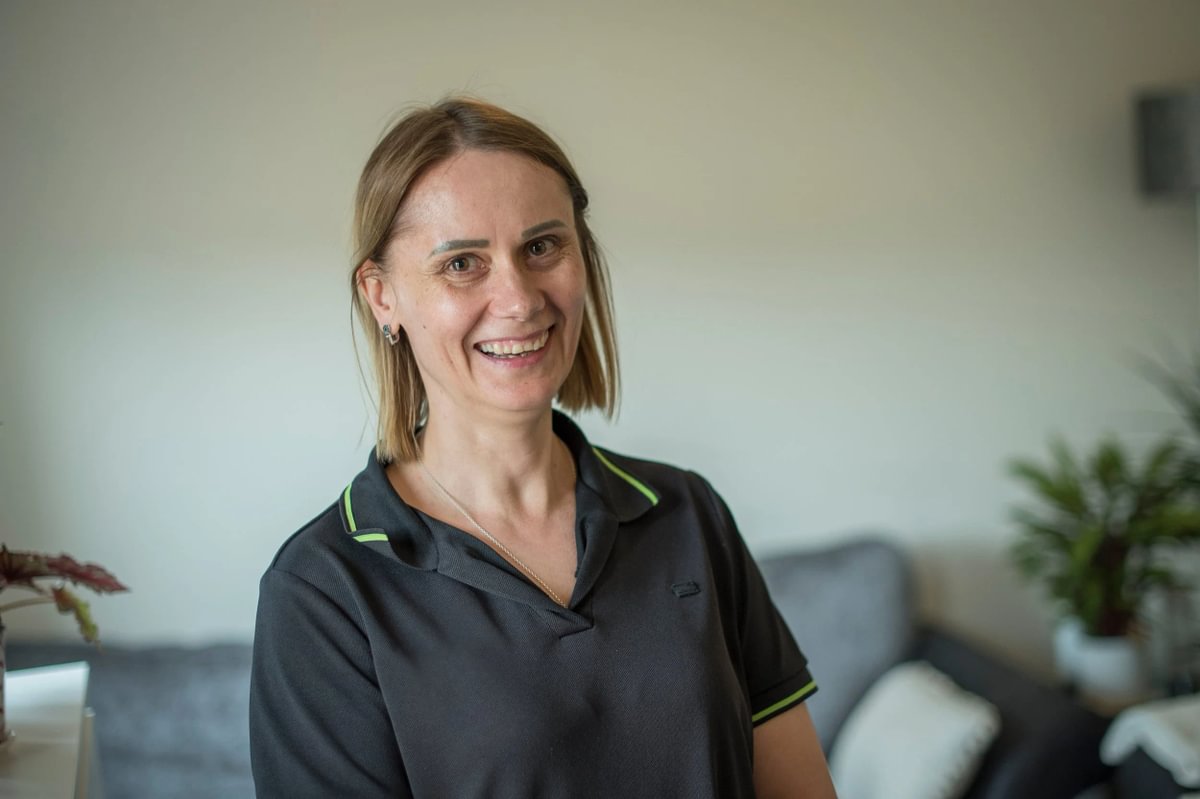If you’re a tenant who rents their home from Accent, you might have considered buying your home from us.
Owning your own home is a great investment in your future and gives you much more freedom to decorate, and you might get a discount from us because you’re already a tenant.
However, it’s also a big decision with lots of costs and extra responsibilities, so we recommend you always get expert advice before starting your homeownership journey by talking to the government’s Right to Buy experts or similar.
There are three schemes that can help you buy your rented home:
- the Right to Buy
- the Right to Acquire
- the Right to Shared Ownership
What is the Right to Buy scheme?
Right to Buy is a scheme in England that helps people who rent from the council or a housing association buy their homes for less money.
To use Right to Buy you will need:
- to have been an Accent tenant since before 15 January 1989
- to currently hold a secure tenancy
There can be some obstacles that can prevent this, like specially adapted homes, ongoing legal action or anti-social behaviour. Find out more about Right to Buy on Gov.UK
Yes, you can make a joint application with Right to Buy and add extra people, but there are rules about who can join.
If you do qualify, you could buy your property with:
-
someone else on your tenancy agreement
-
your spouse or civil partner
-
up to three family members who lived with you for the last 12 months – they don’t need to be on the tenancy agreement but must live in your home as their main residence (we might ask for proof)
We work out how much your home is worth based on its estimated selling price in the current market. To do this, we’ll hire a professional valuer with a qualification from the RICS (Royal Institute of Chartered Surveyors) who’ll visit your home to assess its market value.
If you think our valuation is wrong, you can request another one for free from an independent district valuer.
However, if you appeal and the new valuation is higher than ours, we’ll have to use the higher value, and give you a new offer based on that.
Depending on how long you’ve been a tenant and where you live, you can get a discount on your home.
However, if you sell your home within the first five years, you might have to give back some or all of your discount.
After five years, you can sell it without repaying any discount.
What is the Right to Acquire scheme?
Right to Acquire is very similar to Right to Buy, but there are slightly different rules and regulations around it.
To use it, you’ll need to have
-
an Accent home built with public funds after 1 April 1995
-
an assured tenancy with Accent
-
lived in your home for a certain amount of time – speak to us to find out more
Some homes can’t be bought under the Right to Acquire scheme, like those:
-
designed for people with disabilities
-
intended for older tenants
-
in specific rural areas exempted by the government
-
where we lack legal authorisation for leases exceeding certain durations
These are just a few examples – we can tell you if you can acquire your home under this scheme if you contact us.
Yes, you can make a joint application with Right to Acquire but there are rules about who can join.
If you do qualify, you could buy your property with:
-
someone else on your tenancy agreement
-
your spouse or civil partner
-
up to three family members who lived with you for the last 12 months – they don’t need to be on the tenancy agreement but must live in your home as their main residence (we might ask for proof)
We work out how much your home is worth based on its estimated selling price in the current market. To do this, we’ll hire a professional valuer with a qualification from the RICS (Royal Institute of Chartered Surveyors) who’ll visit your home to assess its market value.
If you think our valuation is wrong, you can request another one for free from an independent district valuer.
However, if you appeal and the new valuation is higher than ours, we’ll have to use the higher value and give you a new offer based on that.
Depending on where you live, you may receive a discount of between £9,000 and £16,000 on the price of your property.
If you sell within five years, you might need to repay some or all of the discount you got.
If you sell within the first year, you'll most likely have to pay back the full discount.
The amount you repay depends on your home's selling price. For instance, if you got a 10% discount, you'd repay 10% of the selling price.
If you sell your home within 10 years of buying it through Right to Acquire, you have to offer it to us first.
What is the Right to Shared Ownership scheme?
The Right to Shared Ownership lets renters living in social or affordable homes buy part of their home. It’s well suited for people who can’t afford the usual route to homeownership.
When you buy, you’ll be asked to pay between 10% and 75% of your home’s value, and then pay rent on the rest. You don’t need to share with anyone. Instead, you own a bit of your home and continue to pay rent on the remainder.
To qualify, you must:
- be an Accent tenant
- live in the home for at least a year
- meet income limits
Over time, you can buy more of your home (called staircasing), reducing your rent as you do. For most homes, you can work up to 100% ownership.
To find out more about Right to Shared Ownership, you can contact us.
What should I know before buying my own home?
Buying a home is one of the biggest decisions you will ever make. While it’s a great investment for the future, it isn’t right for everyone. Here are some of the things you should bear in mind while making up your mind.
Upfront costs
Buying your own home can come with a lot of unforeseen costs and fees.
You’ll likely have to pay one-off charges including:
- solicitors' fees - charges for legal services during a house purchase
- mortgage valuation fee - for a survey to assess the property's value
- mortgage arrangement fee - the lender's fee for arranging the mortgage
- Stamp Duty Land Tax (SDLT) - government tax on residential property purchases
After you’ve bought your home, there are also ongoing costs like:
- mortgage payment - paid every month to your lender
- service charge - costs for maintaining, cleaning and repairing the estate or apartment block your home is in
- reserve fund - part of the service charge and is set aside for major works or repairs
For more advice on fees and costs, talk to an independent mortgage broker.

Repairs and maintenance
As a homeowner, you’ll be responsible for fixing and maintaining your home. This can include costly repairs like the boiler or roof. It also means you might need to take out buildings insurance.
You may also still need to pay a regular service charge to cover the cost of maintaining the building, the communal areas and grounds outside your home.

How can I find out more about buying my Accent home?
If you’re interested in buying your home, we’re here to help. Just drop us a line by filling in the form on our Contact us page.





